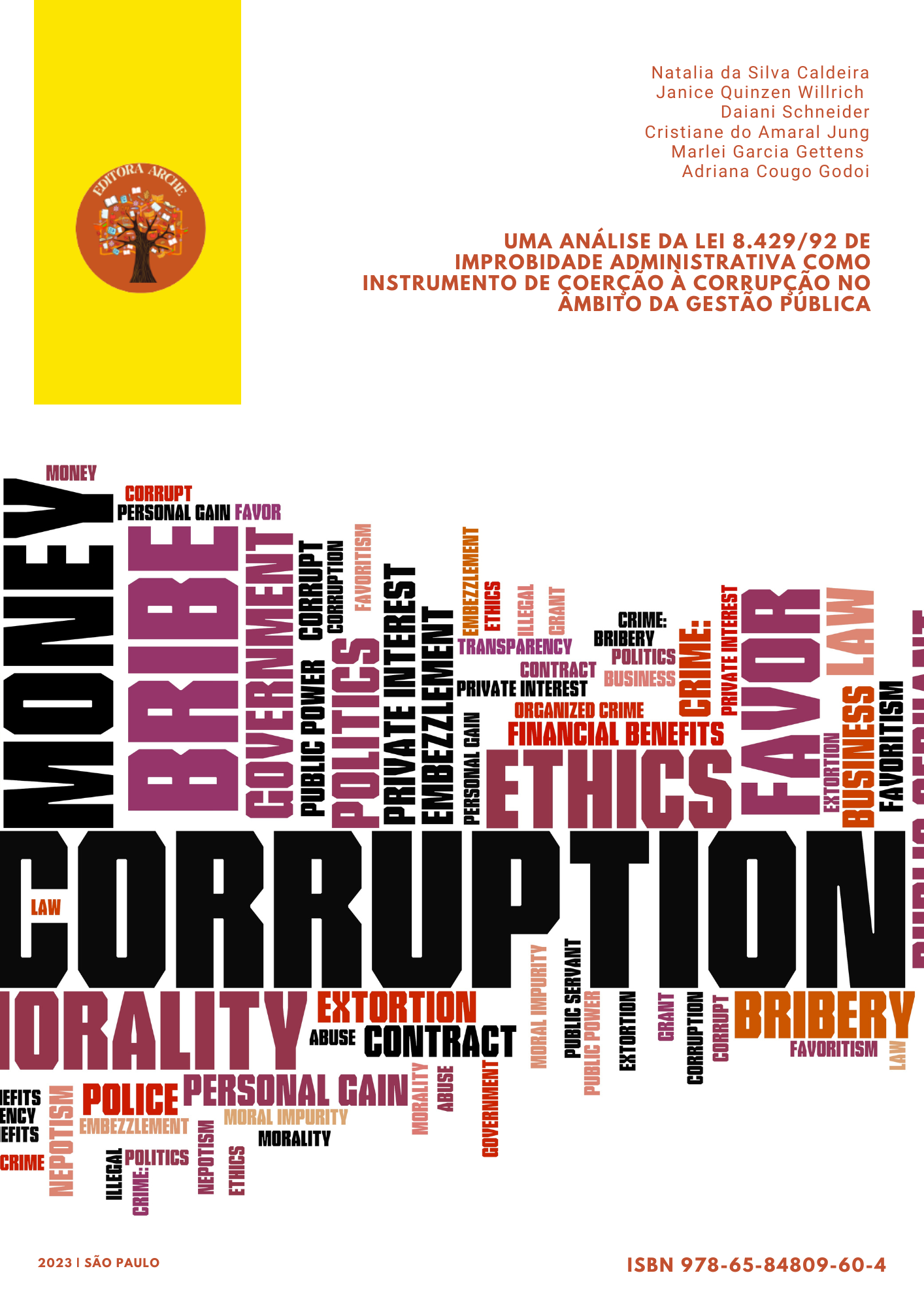AN ANALYSIS OF ADMINISTRATIVE IMPROBITY LAW 8.429/92 AS AN INSTRUMENT FOR COERCING CORRUPTION IN THE SCOPE OF PUBLIC MANAGEMENT
Keywords:
Public Agents. Law of Administrative Improbity. Law. LIA. Public Heritage.Abstract
In the current Brazilian legal sphere, it is imperative that the Public Administration conduct itself ethically and morally, given the growing demand from society for effective measures to combat corruption, misuse of public funds and illicit enrichment. In such a scenario, the term "administrative misconduct" is used to designate corrupt conduct perpetrated by dishonest public servants in the performance of their duties.
Administrative improbity expresses the transgression of administrative morality and can be conceived as a form of corruption that corrodes the Public Administration, violating the principles of the legal system and resulting in undue property advantages, harming society and causing damage to the treasury.
The principle of morality must be intrinsic in the actions of the Public Administration and the administrator must act with integrity, seeking the common good. Any violation of these principles constitutes the crime of administrative impropriety, provided for in Law 8,429/92.
Law 8.429/92, along with article 37, paragraph 4 of the Federal Constitution, is an invaluable tool in the fight against corruption, as it stipulates criteria to identify improper conduct in Public Administration.
Despite the progress represented by the Law of Administrative Improbity in the fight against corruption, unfortunately there are still no indications of a decrease in cases of corruption in Public Administration, suggesting an insufficient application of the legislation by legislators. The persistence of corruption in the public sphere, even with the existence of a material and procedural legal norm such as the Law of Administrative Improbity, is a sad reality.
Finally, this book fulfills its social function in disseminating the knowledge attached by the authors in the course of their academic journeys.
I wish everyone a fruitful reading,
The authors.
Downloads

Downloads
Published
How to Cite
License
Atribuição CC BY
